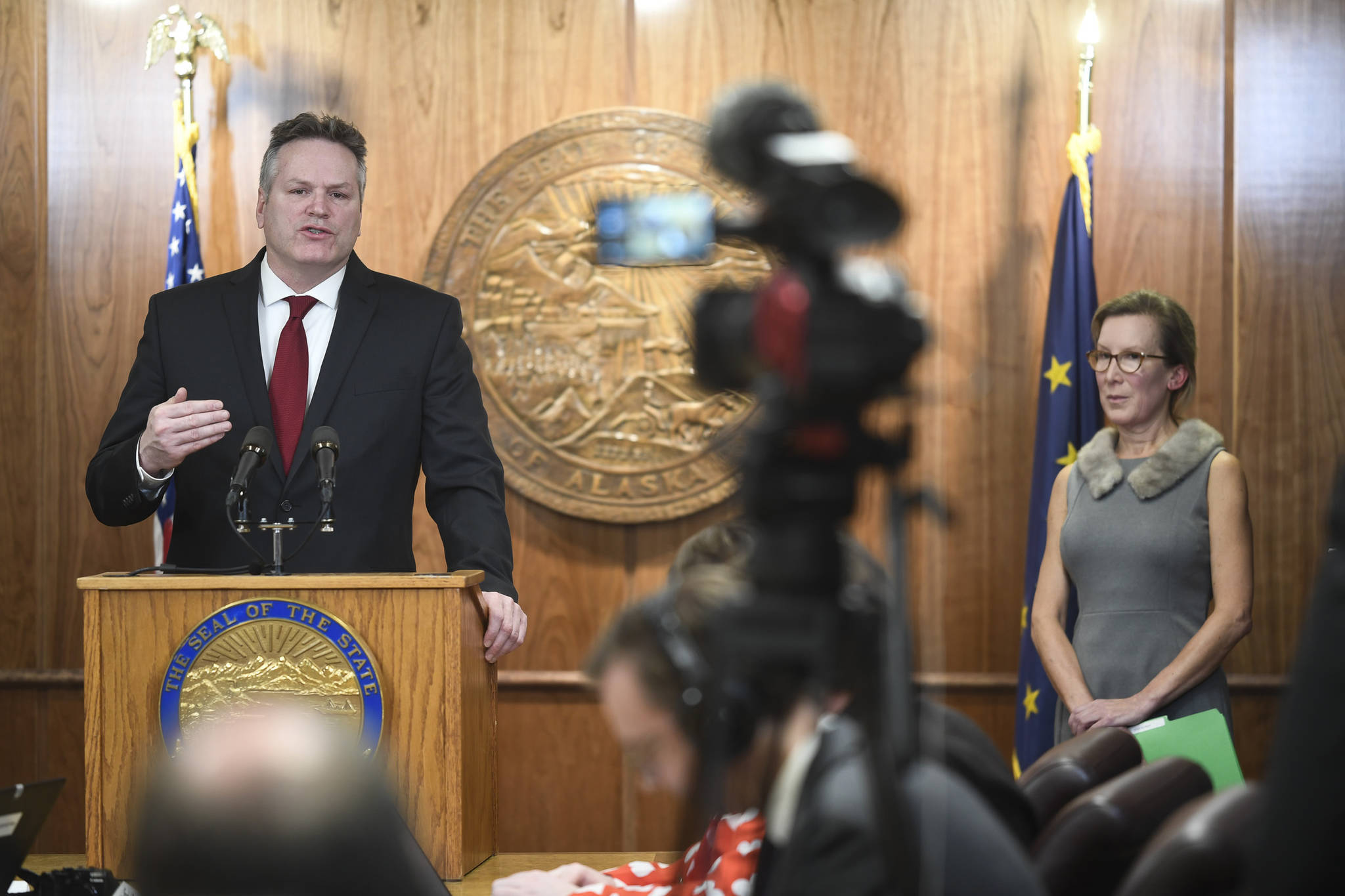Gov. Mike Dunleavy spoke with reporters on a conference call Thursday afternoon in an interview that mostly covered the budget and the ongoing legislative impasse.
“When we came into office,” Dunleavy said in opening remarks, “we were faced with reigning in the size of this budget. The last administration attempted to deal with the budget by taking part of the (Permanent Fund Dividend), and by taxes,” an approach which was rejected the governor said.
His administration attempted to make the cuts necessary to balance the budget, he said, but the Legislature has tried to put it all back. “That doesn’t get us any closer to solving the problem.”
The governor said that if the laws concerning the PFD and the budget needed to be changed then that was a discussion that should be had, but that the people of Alaska needed to be part of it.
[Legislature moves PFD, capital budget bills forward]
“There are still statutes on the books that we need to follow,” he said.
Asked if he was willing to compromise with the Legislature, Dunleavy replied that he had. He said that moving the special session from Wasilla and amending the call of the special session were compromises. He said that he had been having conversations with the legislative leadership that had attempted to “come up with a plan that would be a step down approach.”
It’s been clear for some time, the governor said, that cuts to the budget needed to be made. He noted that as a senator he had introduced a plan that would have reduced the budget over three years. “We could’ve prepared the people of Alaska for these reductions,” he said. “We still have a budget deficit and we’re committed to getting Alaska to a path of fiscal sustainability.”
Dunleavy said of public response to the vetoes that he was glad that people were engaged. “I’m not being flippant,” he said. The people of Alaska, “they’re the ones we work for, they’re going to be the ones who chart the path we go down.”
The cuts he made were difficult decisions he said, and that they were particularly because of the dependency many Alaskans have on state services. His administration was “working with the legislature for a step down approach that would take place over several years.”
Yet the Alaskans he had spoken to, he said, were concerned about their rules based system.
“If the legislature wants to change the rules, the people of Alaska are going to want to feel they’re a part of that discussion,” Dunleavy said.
Alaskans had been fortunate he said, to provide for the state while the price of oil was high, “but that changed in 2014,” he said.
“It’s a $1.6 billion imbalance, we have about a year left in our (Constitutional Budget Reserve),” Dunleavy said. “I was determined to fix this on my watch.”
Dunleavy said he knew his cuts were going to cause heated debate, something he felt need to happen so that Alaska could decide which road it was going to go down.
He said that the current Legislature seemed to favor the government over the people, something he speculated would become “fodder for the next election.”
[Capitol Live: Legislature passes PFD bill]
Asked about reducing oil tax credits as a way of generating more revenue, the governor responded that he had heard the suggestion, “through the grapevine,” but that he had generally favored less taxes.
“That needs to have a serious discussion because there’s consequences. More money in the private sector means more investment in the short and long term,” Dunleavy said.
Dunleavy was emphatic that it was the Legislature that was having trouble agreeing with itself that was causing so much turmoil. He repeated several times that he had been in daily contact with legislators and was prepared to work with them to find a solution.
However, he said, if the legislature was not able to come to an agreement by the end of the special session, another would be called.
“If the work’s not complete, we have to,” he said.
• Contact reporter Peter Segall at 523-2228 or psegall@juneauempire.com.

